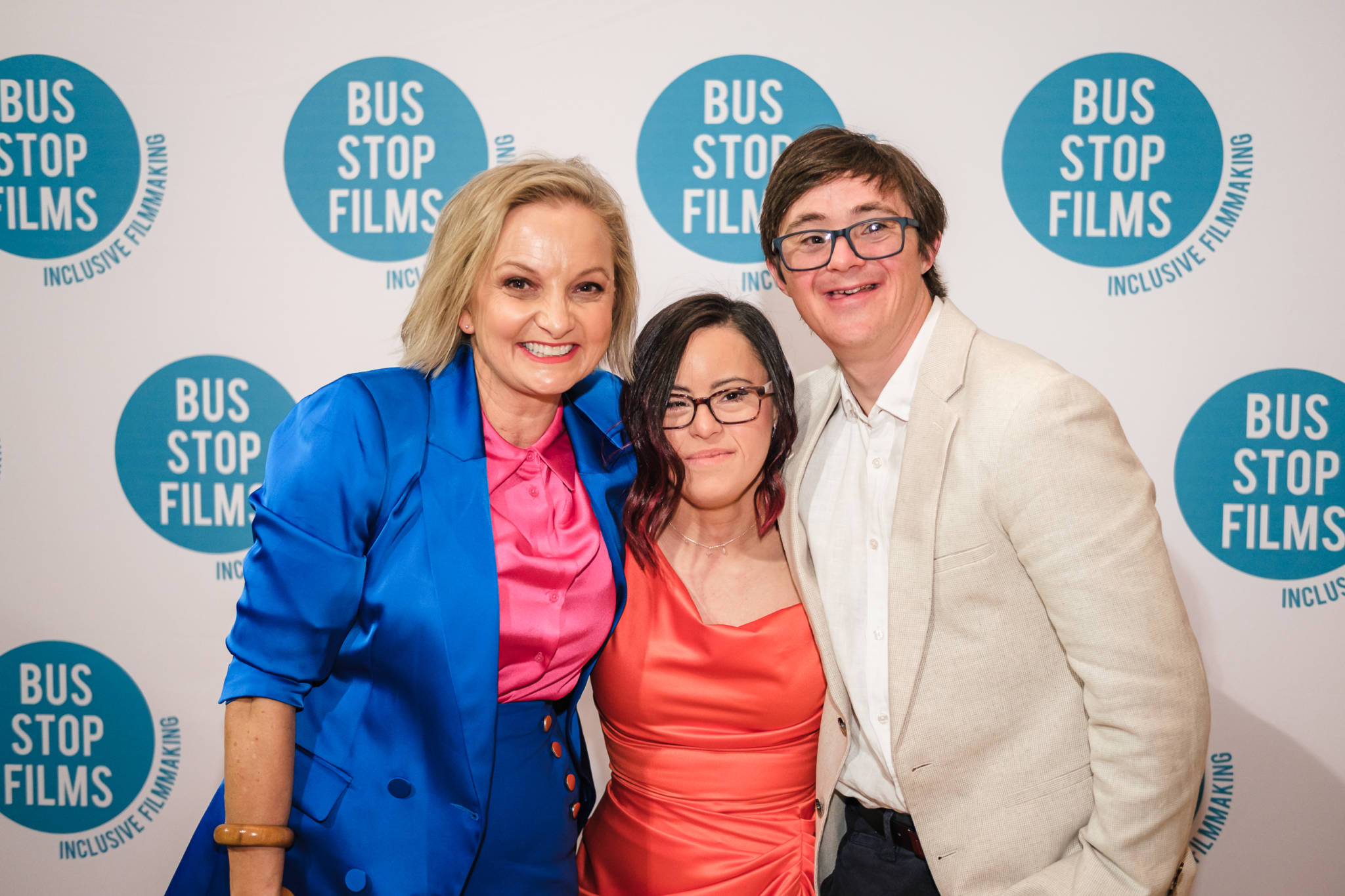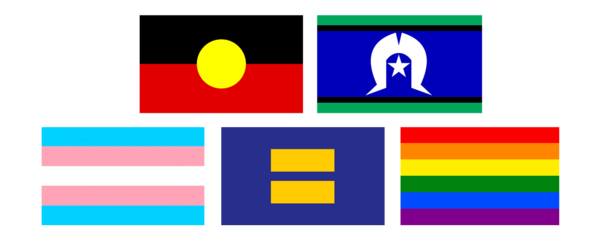We caught up with Inclusive Producer Attachment, Harry Sabulis to chat about his experiences on set with Bus Stop Films’ Accessible Film Studies students. Through the program, Harry worked alongside the students and facilitators to prioritise inclusivity and accessibility and produce content through those lenses. Bus Stop Films’ Inclusive Producers Attachment program is proudly supported by Screen Queensland.
Harry is an emerging producer, writer and director who has a passion for telling queer stories and championing underrepresented voices. He is known for his work on the Epic Games and Screen Queensland-supported short Road to Pride, as well as the crime-thriller Toothless and queer romance Lumber.
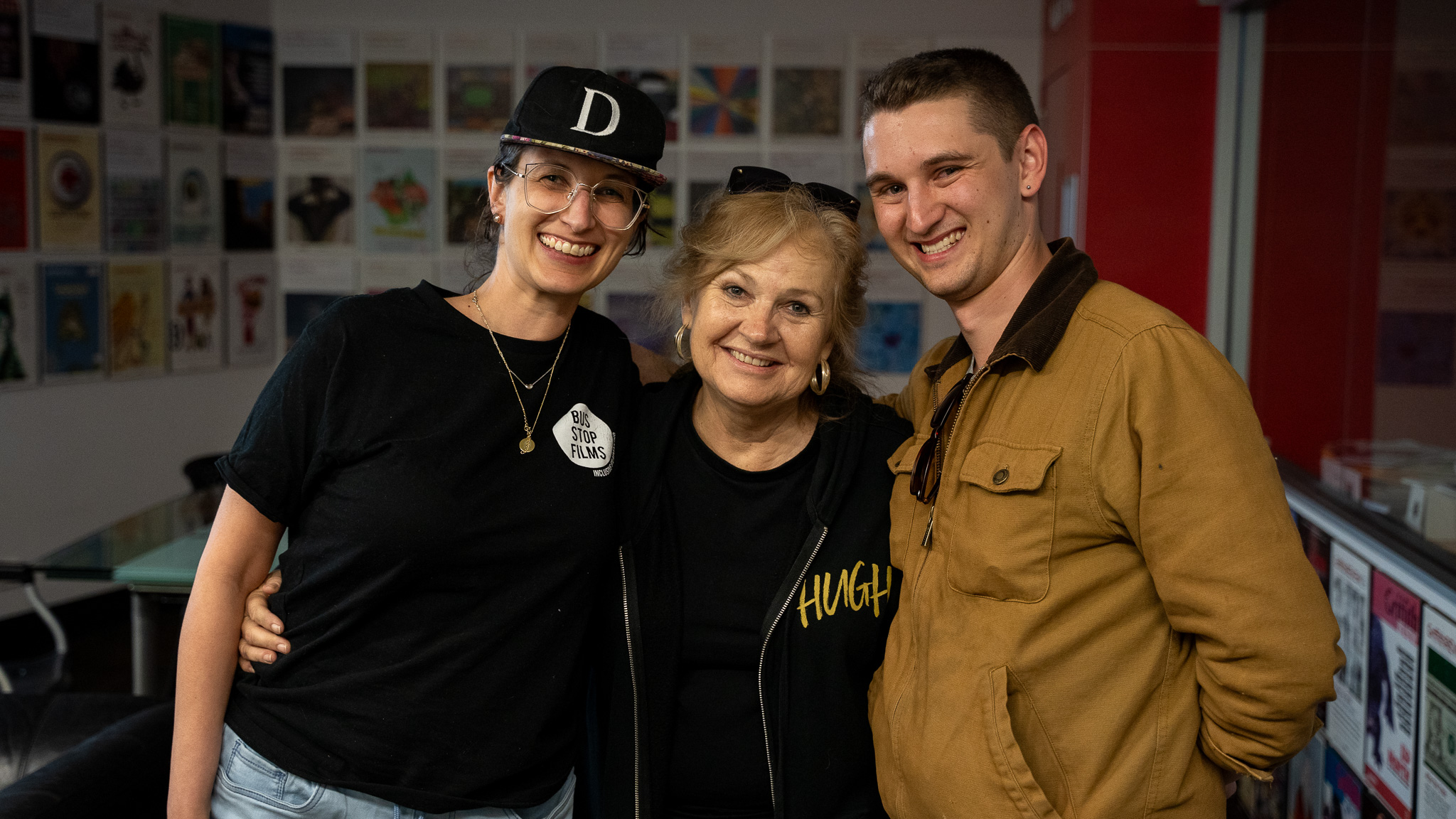
Why is an inclusive screen industry important to you?
I strongly believe that inclusivity should be a big priority to producers across the industry. It’s great we are seeing more inclusive stories and characters on our screens, and we have such a great mix of diverse voices in Australia, so we should be championing these stories. I’ve always been passionate about telling LGBTQIA+ stories in my own work, such as my previous short Road to Pride supported by Screen Queensland and Epic Games, so it was a great privilege to work with Bus Stop Films and help tell inclusive stories with the right people to author these stories behind and in front of the camera. No community wants stories about us without us, so I was thrilled to be able to do my part in helping tell these amazing stories with the Bus Stop team. It’s important for all of us in the industry to do our part to help tell the stories of other communities without taking the voice away from these communities.
What was your experience like as an Inclusive Producer Attachment with Bus Stop Films?
No two days were the same! I was very lucky to attend several of the Bus Stop classes in Brisbane, interacting with the fabulous Brisbane students and all the lovely staff members and support workers. I was also able to lend my own industry experience to helping the students, and to working alongside the talented team of industry professionals who mentored them to produce our two short films A Song For Skyla and Muzak.
A definite highlight was location scouting in scenic parks across the Greater Brisbane area and taking photos, assessing the accessibility of each location to see if they were viable for filming. Walking around in beautiful parks all day taking photos—sometimes you forget you’re even working!
But the most rewarding part—and certainly the most fun part—was working with the students! We had such a great cohort across the two Brisbane classes, and as happy as I was to share my experience in the industry with them, I felt like I was learning as much from them as they were from me. Being surrounded by such a passionate group of students all so excited to be making their way into the industry was a highlight every day I got to spend with them. If any of them are reading this now—you all rock!
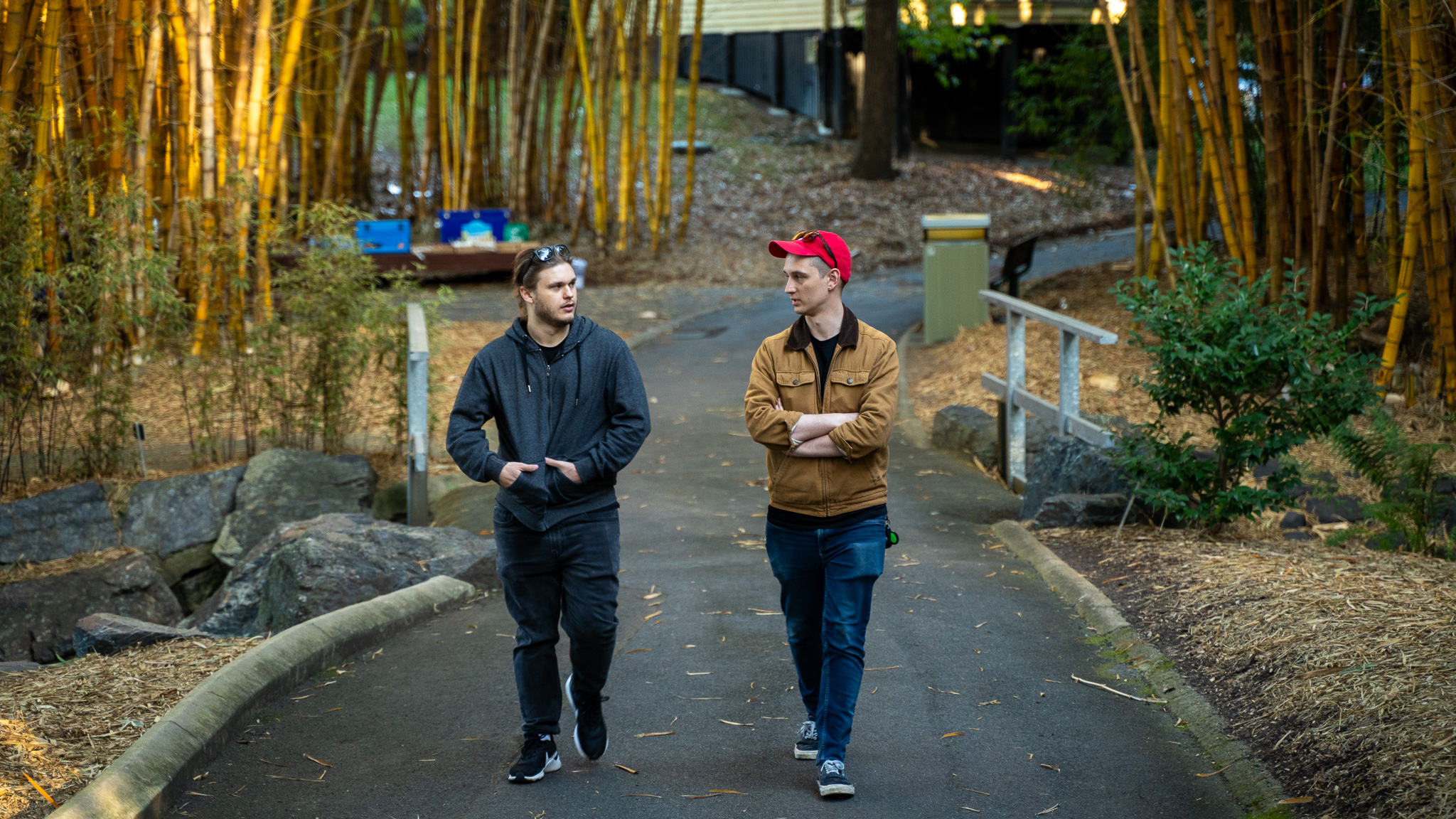
What have you learned from the attachment program that you’ll apply to your own practice?
The biggest thing that I learnt from working with the Bus Stop team was to view accessibility as an essential element in pre-production. For our films, we knew the accessibility needs of our students, cast members and crew, and we planned accordingly so that no one was disadvantaged when we were on set together.
This is definitely something I plan on taking into my own projects in future—whether I’m writer, producer, or director—to seek out the accessibility needs of everyone working on my productions. We all deserve to be able to work on a production with our basic needs met.
What is the most important step in prioritising inclusivity on set?
The biggest thing is planning for the accessibility needs of your team ahead of time and accounting for it. Whether it is the access needs of wheelchair users or measures to prevent sensory overload, it’s important to know the needs of everyone you’re working with and make sure those needs are catered for. It goes a long way to let people know that their involvement in a production is cherished and wanted, and not a burden to anyone.
How can the future of filmmaking be more inclusive?
One of the most important things for inclusive filmmaking is having people from diverse backgrounds in front of and behind the camera. We should all be working together to help these stories be told, nurturing the voices that are right to tell them, and giving these voices the support they need to see these projects come to life. I strongly encourage producers to talk to the Bus Stop Films team and bring some of these talented film students onto your sets—they’re the real future of inclusive filmmaking!
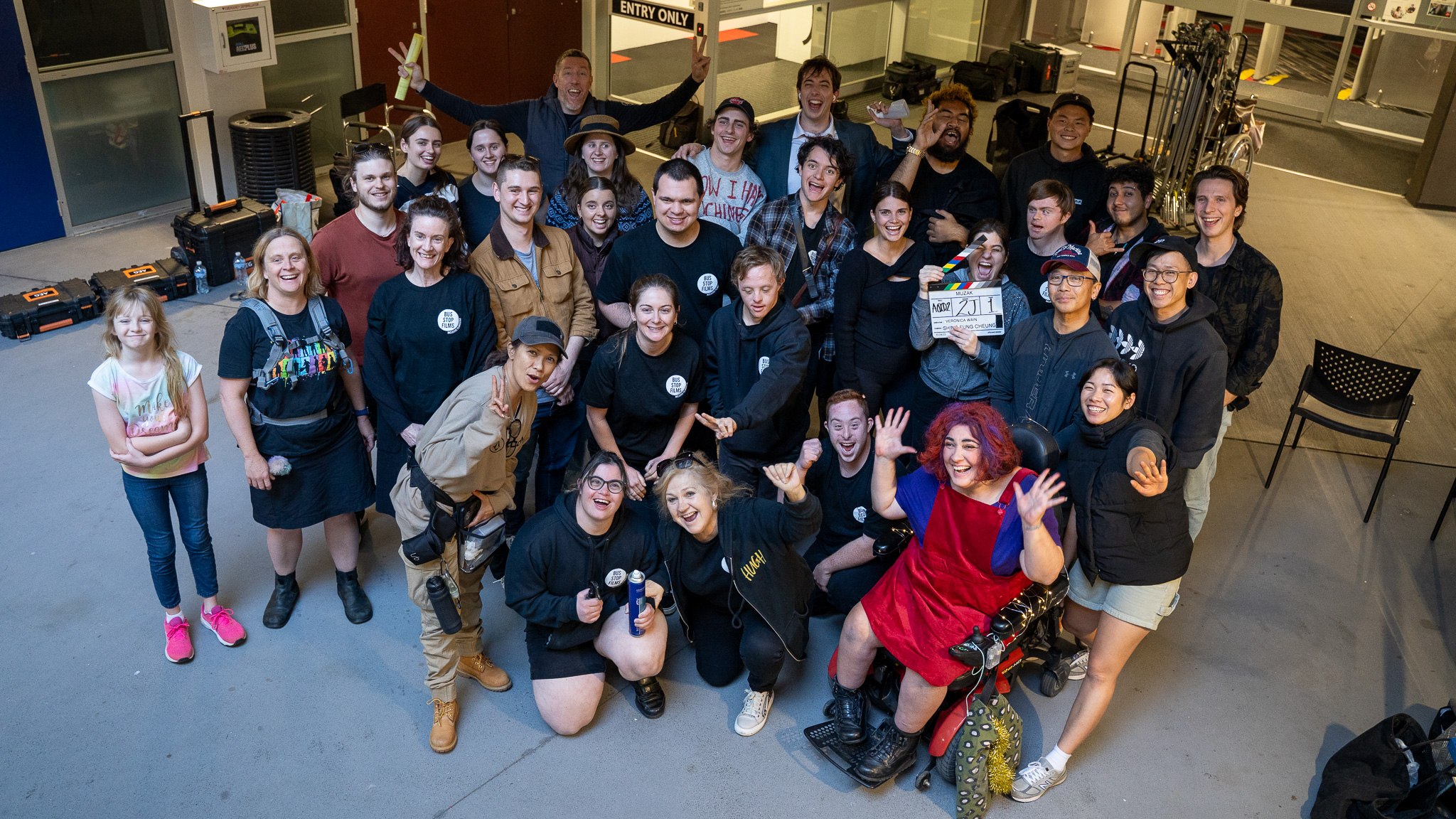
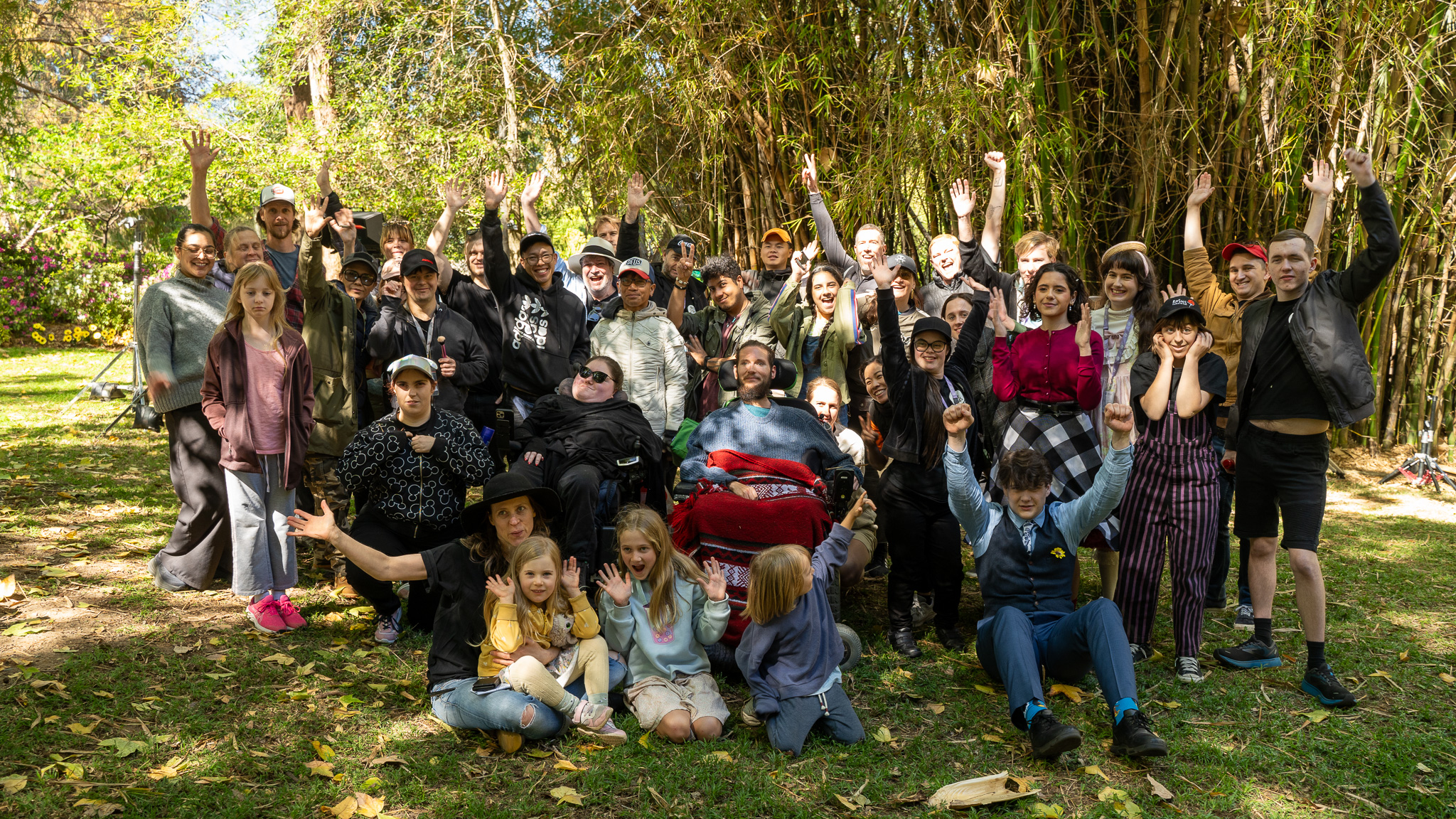
International Day of People with Disability 2023 is Sunday 3 December. This week, on Tuesday 5 December, the Bus Stop Films 2023 Showcase, featuring short films from the Accessible Film Studies cohort, is coming to Brisbane. To see the films that Harry and the Brisbane students worked on this year, book your tickets here.


